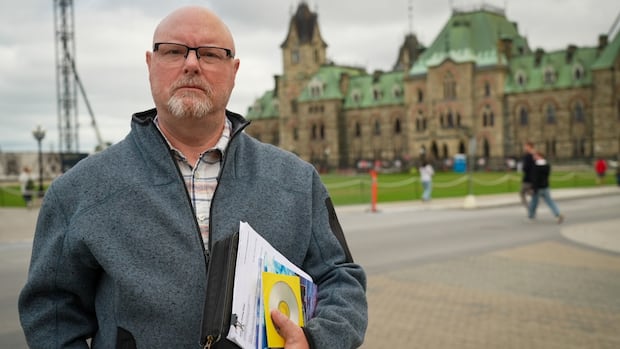A former legal officer of the Canadian Armed Forces expressed deep disappointment at Canada’s failure to protect his former Afghan colleagues, who applied for immigration under a specialized program for assisting the Canadian government four years ago. This criticism follows a recent ruling by a Federal Court judge that condemned Immigration, Refugees, and Citizenship Canada (IRCC) and Global Affairs Canada for negligence and failure to implement the program effectively.
Retired major Cory Moore, along with other Canadian lawyers, is urging the government to review the cases of Afghan individuals who were overlooked in the immigration process. Moore denounced the government’s handling of the situation as “deplorable” and “shameful,” emphasizing the program’s intent to safeguard lives and the government’s disregard for it.
The temporary program, which was established shortly before the Taliban takeover of Kabul in August 2021, aimed to assist Afghan nationals who supported the Canadian government, including interpreters, embassy staff, and other professions. Despite submitting initial applications for 12 of his former colleagues and their families, Moore highlighted the lack of response and support from the government.
They got ghosted by the federal government — no followups, no nothing.– Tamar Boghossian, Ottawa lawyer
Among the group were military prosecutors, investigators, security personnel, recruitment video participants, a doctor, and a journalist who collaborated closely with Moore during his mission to enhance the legal branch of the Afghan National Army. Moore emphasized the crucial role these individuals played, including female lawyers prosecuting Taliban members accused of crimes within the Afghan army.
Despite ongoing efforts and appeals for help, the group remains in limbo, with most still in Afghanistan or stranded in neighboring countries due to challenging conditions. Moore highlighted the government’s failure to act promptly and provide the necessary support for these individuals.
The closure of the program in 2022, with a limited quota of 18,000 spots, drew criticism for leaving many deserving applicants unattended. While over 15,000 Afghans benefited from the program, none of Moore’s 12 colleagues received an invitation or meaningful response from IRCC, leading to frustration and abandonment.
In a significant development, a Federal Court judge ruled in favor of an Afghan applicant, emphasizing the government’s negligence in processing applications and honoring its commitments. The decision highlighted the government’s duty to handle applications fairly and promptly, holding it accountable for the program’s deficiencies.
Lawyers involved in the case welcomed the ruling as a step towards justice and urged IRCC to revisit cases like Moore’s group without the need for legal interventions. They emphasized the need for a transparent and fair process to ensure vulnerable individuals aren’t left to navigate the system alone.
Moore continues to advocate for his former colleagues, calling on government agencies to reevaluate the cases that were mishandled and overlooked. While IRCC declined to comment on the specific cases, citing privacy concerns, they reiterated their commitment to assisting Afghans through regular immigration programs.
National Defense and Global Affairs also refrained from commenting on the situation, signaling the challenges faced by the affected individuals and the need for a comprehensive review of the immigration process.



